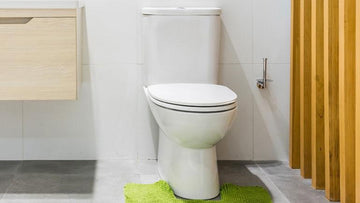In an era where sustainability and environmental consciousness are at the forefront of global discussions, the concept of smart bathroom water usage monitoring is gaining significant traction. The integration of advanced technology into daily life is not just a luxury, but a necessity, especially in areas like water conservation. As climate change continues to impact our planet, innovative solutions are needed to ensure the efficient use of natural resources. This article will explore how smart bathroom systems can revolutionize water usage monitoring, offering a sustainable path forward.

The Growing Need for Smart Monitoring Systems
Water is one of the most precious resources on our planet, yet it is often taken for granted. In bathrooms alone, a significant amount of water is wasted daily due to inefficient practices and systems. According to the Express Sewer, traditional toilets and faucets contribute heavily to unnecessary water usage. This is where smart technology steps in, providing a viable solution to monitor and reduce water consumption effectively.
What is Smart Bathroom Water Usage Monitoring?
Smart bathroom water usage monitoring involves the use of technology to track and manage water consumption in real-time. These systems can include sensors, automated faucets, and smart toilets that provide data on water usage patterns, helping users identify areas where water is being wasted. The data collected can be used to optimize water usage and reduce unnecessary waste, aligning with global water conservation efforts.
How Do Smart Systems Work?
Smart bathroom systems are designed to integrate seamlessly into existing plumbing and fixtures. They often include sensors that detect water flow, pressure, and temperature. This information is then transmitted to a central system or a mobile application, allowing users to monitor their water usage from anywhere. For example, the DripX blog provides insights into how these systems function and their impact on reducing water waste.
Benefits of Implementing Smart Water Monitoring
The benefits of implementing smart bathroom water usage monitoring are numerous. Firstly, they provide a clear picture of water consumption patterns, enabling users to make informed decisions about their water usage. Secondly, these systems can lead to significant cost savings by reducing water bills. Additionally, they contribute to environmental conservation by minimizing water wastage, aligning with global sustainability goals.
Challenges and Considerations
While the advantages of smart water monitoring systems are clear, there are challenges to consider. The initial cost of installation can be high, and there may be technical complexities involved in integrating these systems into older plumbing infrastructures. However, the long-term benefits often outweigh the initial investment, making it a worthwhile consideration for homeowners and businesses alike.
The Role of Industry QA in Smart Water Monitoring
For industry QA professionals, the advent of smart technology in water monitoring presents an opportunity to ensure the highest standards of quality and efficiency. By overseeing the implementation and operation of these systems, QA specialists can help identify potential issues and optimize system performance, ensuring that water conservation goals are met effectively.
Looking Ahead: The Future of Water Conservation
As technology continues to evolve, the potential for smart bathroom water usage monitoring to transform water conservation efforts is immense. By adopting these systems, individuals and businesses can contribute to a more sustainable future, reducing their environmental footprint and conserving one of our planet's most vital resources. For more information on how to implement these systems, visit Wagner Mechanical.

FAQs
What are the top benefits of smart water monitoring systems?
These systems offer real-time data on water usage, help reduce water bills, and contribute to environmental conservation efforts by minimizing water waste.
Are smart bathroom systems difficult to install?
While installation may require an initial investment and potential modifications to existing plumbing, many modern systems are designed to integrate seamlessly with minimal disruption.
How can industry QA professionals contribute to water conservation?
QA professionals play a crucial role in ensuring that smart monitoring systems operate at peak efficiency, identifying areas for improvement and optimizing system performance to meet conservation goals.






